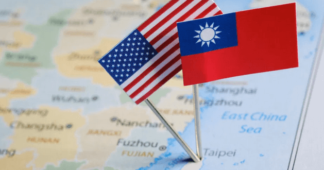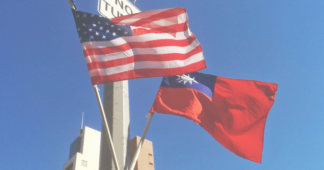Sep 14, 2022
Correction: This article originally stated that the Senate Armed Services Committee advanced the bill, but that is incorrect. It was advanced by the Senate Foreign Relations Committee.
The Senate Foreign Relations Committee approved a bill on Wednesday that would radically alter US policy toward Taiwan and significantly escalate tensions with Beijing.
The amended version of the Taiwan Policy Act would give Taiwan $6.5 billion in military aid, give the island the benefits of being a “major non-NATO ally,” expedite arms sales to Taipei, and require sanctions in the event of Chinese aggression.
The bill was easily passed by the Senate Foreign Relations Committee in a vote of 17-5. The senators who voted against the legislation were Rand Paul (R-KY), Chris Murphy (D-CT), Ed Markey (D- MA), Brian Schatz (D-HI), and Chris Van Hollen (D-MD).
The initial version of the bill would have given Taiwan $4.5 billion in military aid through 2026, but the Senate panel added $2 billion and extended the aid until 2027. The aid will be given to Taiwan through Foreign Military Financing, a State Department program that gives foreign governments money to buy US arms.
The initial version also would have designated Taiwan as a major non-NATO ally. But the updated bill would give Taiwan the benefit of the designation without technically labeling Taiwan as an ally. The changes were made after the White House raised concerns about the legislation.
The initial bill would have allowed President Biden to create a “war reserve stockpile” of arms that would be placed in Taiwan to be used against a Chinese attack. It was amended to say that the stockpile would be placed in an unspecified location in the region but still allocates $500 million for the effort.
If the legislation makes it through Congress and is signed by President Biden, it will be a major overhaul of the US policy toward China and Taiwan, which was defined by the 1979 Taiwan Relations Act. Since 1979, the US hasn’t had formal diplomatic relations with Taipei, and China views any move away from that policy as a major provocation.
One of the biggest changes would be requiring sanctions if China “is knowingly engaged in a significant escalation in aggression.” The current US policy related to a Chinese attack on Taiwan is known as strategic ambiguity and means the US won’t say one way or the other if it will intervene.
Sen. Paul said that now was not the time to move toward a policy of strategic clarity. “This is not a time to radically change long-standing policy … without an appreciation of the consequences that may follow,” he said, according to Politico.
Sen. Mitt Romney (R-UT) voted in favor of the bill, but also recognized how it risks provoking China. “We’re doing something that’s highly provocative and bellicose,” he said.
China’s recent actions have made clear that Beijing will strongly react to US provocations over Taiwan. The legislation comes after China launched its largest-ever military exercises around the island in response to Nancy Pelosi’s visit to Taipei.
While done in the name of deterrence, the Taiwan Policy Act will make a conflict over Taiwan more likely. Chinese officials have said that US support for Taiwan’s “independence forces” could lead to war between the US and China.
We remind our readers that publication of articles on our site does not mean that we agree with what is written. Our policy is to publish anything which we consider of interest, so as to assist our readers in forming their opinions. Sometimes we even publish articles with which we totally disagree, since we believe it is important for our readers to be informed on as wide a spectrum of views as possible.











